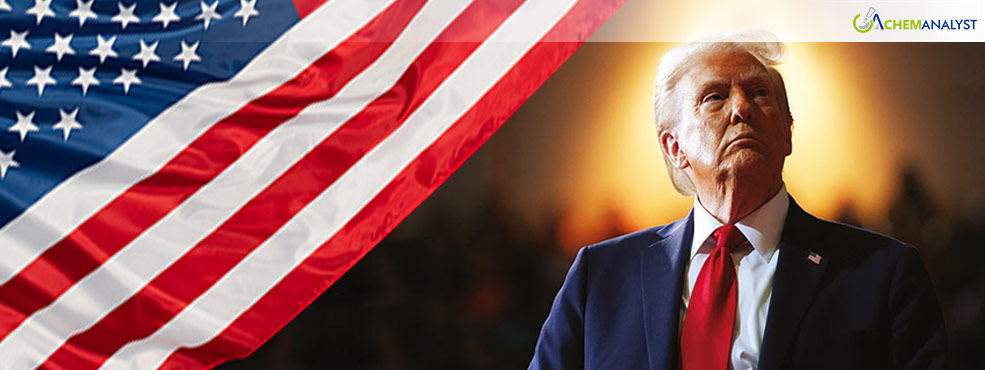Welcome To ChemAnalyst

Donald Trump has announced plans to impose new tariffs on China, Mexico, and Canada as soon as he takes office, aiming to compel these nations to address illegal immigration and drug smuggling into the United States, according to the several media reports. The former president stated that on January 20, the day of his inauguration, he would sign an executive order introducing a 25% tariff on all goods imported from Mexico and Canada. Additionally, a 10% tariff will be imposed on China unless its government takes decisive action to halt the smuggling of the synthetic opioid fentanyl into the U.S.
Trump's proposed measures, if enacted, would represent a significant escalation in tensions with America’s top three trading partners. On his Truth Social platform, Trump explained that the tariffs on Mexico and Canada would remain in effect until both nations address the issues of illegal drug trafficking, particularly fentanyl, and unauthorized migration across the U.S. border. "Both Mexico and Canada have the absolute right and power to easily solve this long-simmering problem," Trump wrote, emphasizing, "It is time for them to pay a very big price!"
In a separate post, Trump criticized China for allegedly failing to fulfill promises to impose the death penalty on individuals convicted of fentanyl trafficking. The Biden administration has also been pressing Beijing to curb the production of chemical precursors used in fentanyl, a drug that U.S. officials estimate caused nearly 75,000 American deaths last year.
During his election campaign, Trump proposed even steeper tariffs of up to 100% on Mexico and China if deemed necessary—significantly higher than those implemented during his first term. He has also vowed to revoke China’s most-favored-nation trading status, which provides preferential treatment on tariffs and trade restrictions. Trump maintains that such taxes would not burden American consumers but would instead be absorbed by the targeted countries, a claim widely disputed by economists.
Trump’s nominee for Treasury Secretary, Scott Bessent, has suggested that these tariff threats are likely part of the president-elect’s broader negotiation strategy. The timing could place additional pressure on China, whose economy faces mounting challenges, including a property market crisis, declining domestic demand, and surging local government debt.
However, these tariff plans appear to violate the U.S.-Mexico-Canada Agreement (USMCA), a trade deal signed into law by Trump himself in 2020. The agreement ensures largely duty-free trade between the three nations, and imposing new tariffs could risk undermining this framework. The potential move underscores Trump’s readiness to disrupt existing trade relationships to pursue his policy goals, signaling potential turbulence ahead in U.S. economic and diplomatic relations.
We use cookies to deliver the best possible experience on our website. To learn more, visit our Privacy Policy. By continuing to use this site or by closing this box, you consent to our use of cookies. More info.
